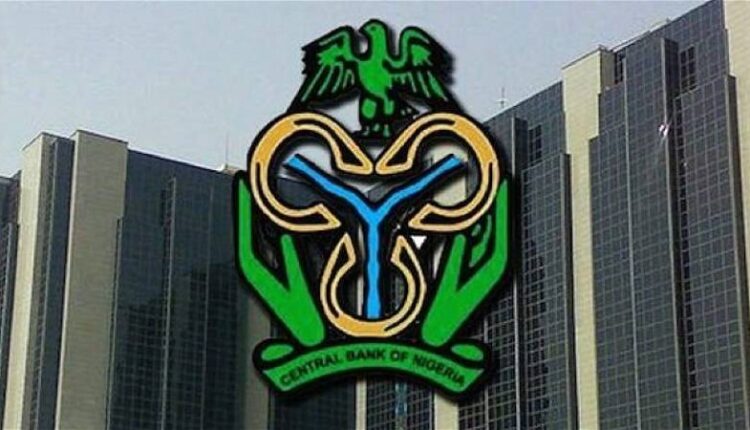Experts Confirms New CBN Monetary and Macroeconomic Policy will Boost Nigeria’s Economy, No Doubt…see details

…Banks’ recapitalisation won’t cause dislocations
...Refocused CBN to engender trust, stability

…Markets await final regulations
Recently, the Finance and economic experts has applauded the Central Bank of Nigeria (CBN) new monetary and macroeconomic policy direction announced that it would lead to a more virile financial sector and long-term stability and growth of the Nigerian economy while expressing optimism.
While commending the CBN Governor, Cardoso, experts reviewed the key policy thrusts of the monetary and economic outlook presented by the Governor of Central Bank of Nigeria (CBN), Mr. Cardoso during the weekend, were unanimous in their endorsement of the key policy changes, although many called for careful implementation plan to avoid unintended consequences.
According to Cardoso, as the keynote speaker at the 58th Annual Bankers’ Dinner and Grand Finale of the 60th Anniversary of the Chartered Institute of Bankers of Nigeria (CIBN) at the weekend in Lagos, he outlined major reforms and his priorities at the helms of the apex bank.
The occasion, aptly tagged ‘Governor’s Day’ is traditionally use by the apex bank chief to review economic direction and project outlook, as a primary guidance to key decision-makers. It was Cardoso’s first comprehensive policy statement since assumption of office in September 2023.
The CBN Governor outlined plans to recapitalise the banking sector, stabilise the foreign exchange (forex) market, improve access to amenable credits, refocus the apex bank on its core mandate of price stability away from the previous foray into unrelated quasi-fiscal activities, curb inflation and improve living standards through new well-coordinated monetary-fiscal policy measures, engender stable policy thrusts for macroeconomic stability and safeguard the integrity and autonomy of the apex bank
Experts who spoke included Managing Director, Arthur Steven Asset Management, Mr Olatunde Amolegbe; Managing Director, Centre for the Promotion of Private Enterprise (CPPE), Dr. Muda Yusuf; Managing Director, APT Securities & Funds Limited, Mallam Garba Kurfi; President, Association of Capital Market Academics of Nigeria, Professor Uche Uwaleke; Managing Director, Globalview Capital Limited, Mr. Aruna Kebira and Managing Director, HighCap Securities, Mr. David Adonri
The experts agreed on the imperatives of the recapitalisation of the banking sector, forex stability, redirection of the apex bank to its core mandates and rebuilding trust in the central bank among other policy thrusts.
They however expressed cautions that the nuances of the expected regulations and implementation plans would play major roles in the overall outcomes of the policy changes.
Experts also expressed optimism that banking sector recapitalisation would not lead to any major dislocations as Nigerian banks and the capital market are in better position to realise the recapitalisation agenda.
According to him, with the CBN back to its orthodox function of price stability and stability of the banking system and the changes in monetary management, the naira will witness medium to long-term stability.
He noted that a review of banking system to ensure players comply with the terms of their licenses will bring sanity to the financial ecosystem.
He said that with the daily meeting of the apex bank’s experts team on financial system liquidity and stability, the CBN would be sending positive signals of readiness to address emerging issues promptly
Yusuf said banks’ capital requirements were due for review in the light of the considerable loss of value amid depreciating domestic currency.
“During the banking consolidation exercise of 2004, the minimum capital requirements for banks was raised from N2 billion to N25 billion. The revised capital requirement was an equivalent of $187 million. Today the same N25 billion is an equivalent of just $32.5 million. This is a clear indication of the phenomenal erosion of the capital base of the banks.
Recapitalization of the banks has therefore become imperative. It is important to ensure that the capital base of banks can support their current exposures in the interest of the stability of the financial system,” Yusuf said.
According to him, it is imperative to deepen the financial intermediation role of the deposit money banks, which is their primary role in an economy, such that they can mobilise adequate financial resources from the surplus end of the economy, to the deficit segment of the economy.
“Financial conditions remain very tight for the private sector amid challenges of access and cost of credit. Banking system credit to the private sector in Nigeria, as at 2022, was a mere 20.6 per cent of the nation’s GDP, as sub-Saharan average of 28 per cent and global average of 145 per cent. Besides, small businesses which account for an estimated 50 per cent of the GDP, have access to just about one per cent of the credit in the banking system.
“The implication is that the banking system is still largely disconnected from the investing community, especially the small businesses in the economy. Financing gap in the small business space has been estimated at over N600 billion. This anomaly needs to be corrected. All these underscores the need to deepen synergy and complementarity between the banking system and the economic players, especially the MSMEs.
“The key metrics of the depth of the financial system include the ratio of financial assets to GDP; ratio of deposit liabilities to GDP; and ratio of money supply to GDP. Nigeria’s rating on account of these ratios is still very low, compared to other emerging economies. Therefore, deepening the financial system for stability is very critical,” Yusuf said.
(Nation)


